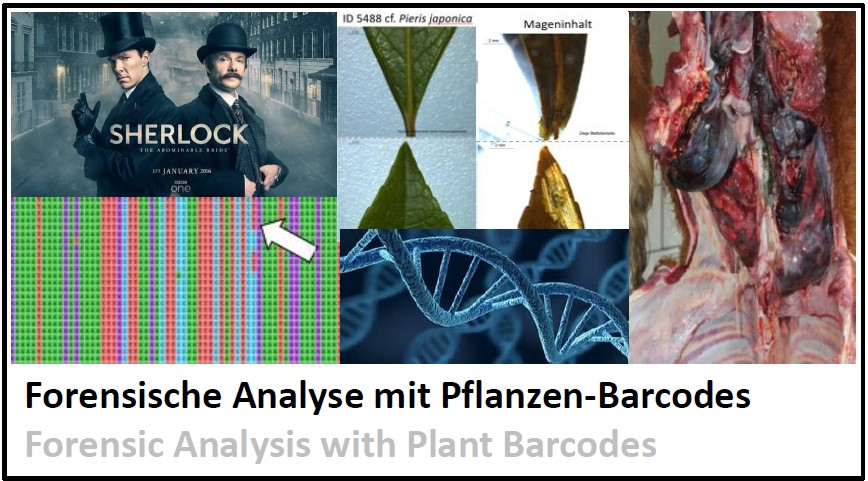2023 08: Botánica forense
 |
Since many years, we work on methods to unveil fake and surrogation of plant-based food, but also medicinal products using so-called DNA barcods. Our taxonomically carefully identified and developed collection of reference plants in the JKIP Experimental Station at the Adenauerring has been crucial to this work. Our work is often thematised in the media, just recently in a broadcast of the Hessische Rundfunk on Superfood that was then also shown by NDR, WDR, ARD and MDR (see video...). This echo has induced interest from those institutions that in Germany are in charge of food safety. Here, we obtained, in the middle of the Corona period, an unusual request by the Chemical Veterinary Investigation Office in Freiburg - they had to deal with several cases of animal poisoning, whether we could support them? We could - using a combination of microscopic diagnostics and DNA barcoding we could solve all cases. The usual method, where species are assigned through a statistic value of sequence similarity, was refined for this purpose. We used (statistically ignored) specific sequence motifs as genetic fingerprints - this approach is known in evolution research as homology by specific quality. This forensic study has now been published in PloS ONE: 204. Schweikle S, Häser A, Wetters S, Raisin M, Greiner M, Fischer U, Pietsch K, Suntz M, Nick P (2023) DNA barcoding as new diagnostic tool to lethal plant poisoning in herbivorous mammals. PloS ONE 18, e0292275 - pdf
|
